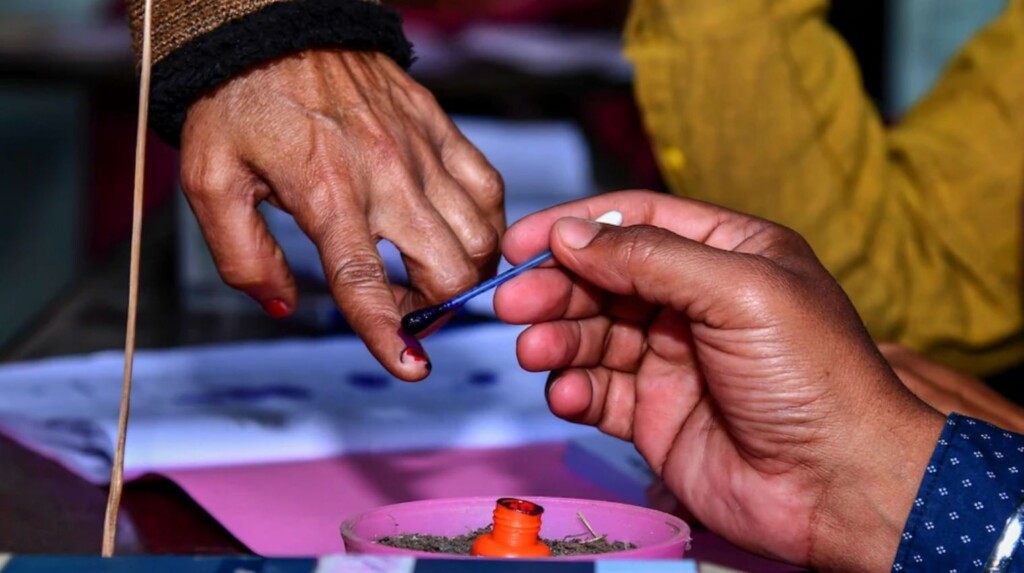The first phase of Lok Sabha elections is currently ongoing in 102 seats across 21 states and Union Territories. Notable figures such as Congress veteran P Chidambaram, his son Karti P Chidambaram, actor Rajinikanth, RSS chief Mohan Bhagwat, Tamil Nadu BJP chief K Annamalai, and Tamil Nadu Chief Minister MK Stalin have already exercised their right to vote.
On the other hand, the ruling Trinamool Congress has accused BJP supporters of instigating violence in Bengal, claiming that they are causing chaos and attacking their party members. Additionally, Trinamool has alleged that the BJP is intimidating voters.
The NDA, led by the BJP, is aiming for a third consecutive term with PM Modi at the helm, while the Opposition is optimistic about a reversal of fortunes through the INDIA alliance. The focus is currently on Tamil Nadu, where voting is currently taking place for all 39 Lok Sabha seats. The BJP is anticipating a higher voter turnout in this southern state, where PM Modi has conducted an extensive campaign.
Here is all you need to know:
Prior to the commencement of voting, Bengal experienced a wave of violence. The Trinamool Congress lodged a complaint with the Election Commission against Nishit Pramanik, the BJP candidate from Cooch Behar. They alleged that Pramanik was exerting control over central forces in the region, hoarding weapons at his residence, and providing shelter to troublemakers.
As of 9 am, the voter turnout in various states stood at 8.21% in Tamil Nadu, 10.41% in Uttarakhand, 4.95% in Arunachal Pradesh, 12.96% in Meghalaya, 10.67% in Rajasthan, and 15.9% in West Bengal, among others.
Congress veteran P Chidambaram exercised his voting rights in Chennai, Tamil Nadu. He expressed confidence in the INDIA bloc winning all 39 seats in the southern state. Chidambaram emphasized that this was only the first phase of elections and remained optimistic about their chances of victory.
Yoga guru Baba Ramdev and Acharya Balkrishna, the Managing Director of Patanjali Ayurved, cast their votes at a polling booth in Haridwar, Uttarakhand.
K Annamalai, the Tamil Nadu BJP president and candidate from the Coimbatore seat, voted at the Uthupatti polling booth in Karur village. Annamalai declared that the era of Dravidian politics had come to an end in the state and accused the DMK and AIADMK of spending over Rs 1,000 crore in Coimbatore to influence voters.
In the initial stage, voting is taking place in various constituencies across different states and Union Territories. These include Tamil Nadu, Uttarakhand, Arunachal Pradesh, Meghalaya, Andaman and Nicobar Islands, Mizoram, Nagaland, Puducherry, Sikkim, and Lakshadweep. Additionally, there are voting processes in Rajasthan, Uttar Pradesh, Madhya Pradesh, Assam, Maharashtra, Bihar, West Bengal, Manipur, Tripura, Jammu and Kashmir, and Chhattisgarh.
Prime Minister Narendra Modi used a social media platform to encourage citizens to vote in large numbers. He specifically called upon the young and first-time voters to participate actively. PM Modi emphasized the importance of every vote and every voice. Union Home Minister Amit Shah also urged citizens to vote in significant numbers.
In the first phase, several Union Ministers, including Nitin Gadkari, Sarbananda Sonowal, Bhupendra Yadav, Kiren Rijiju, Sanjeev Baliyan, Jitendra Singh, Arjun Ram Meghwal, L Murugan, and Nisith Pramanik, are contesting. Additionally, prominent figures such as BJP’s Tamil Nadu chief K Annamalai, former Telangana Governor Tamilisai Soundararajan, DMK’s Kanimozhi, and Congress’s Gaurav Gogoi are also participating.
Out of the 102 seats being contested in this phase, the NDA had secured victory in 41 seats during the 2019 elections, while the Congress-led UPA bloc emerged victorious in 45 constituencies. However, due to the delimitation exercise, six of these seats have been redrawn.
Overall, the Election Commission has deployed a significant number of polling personnel, totaling over 18 lakh, across 1.87 lakh polling stations in the 102 constituencies spread across 21 states and Union Territories. The elections will be conducted in seven phases and will conclude on June 4, with the announcement of the results.
